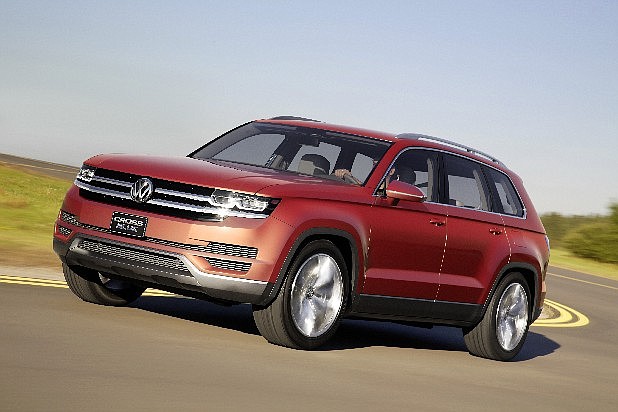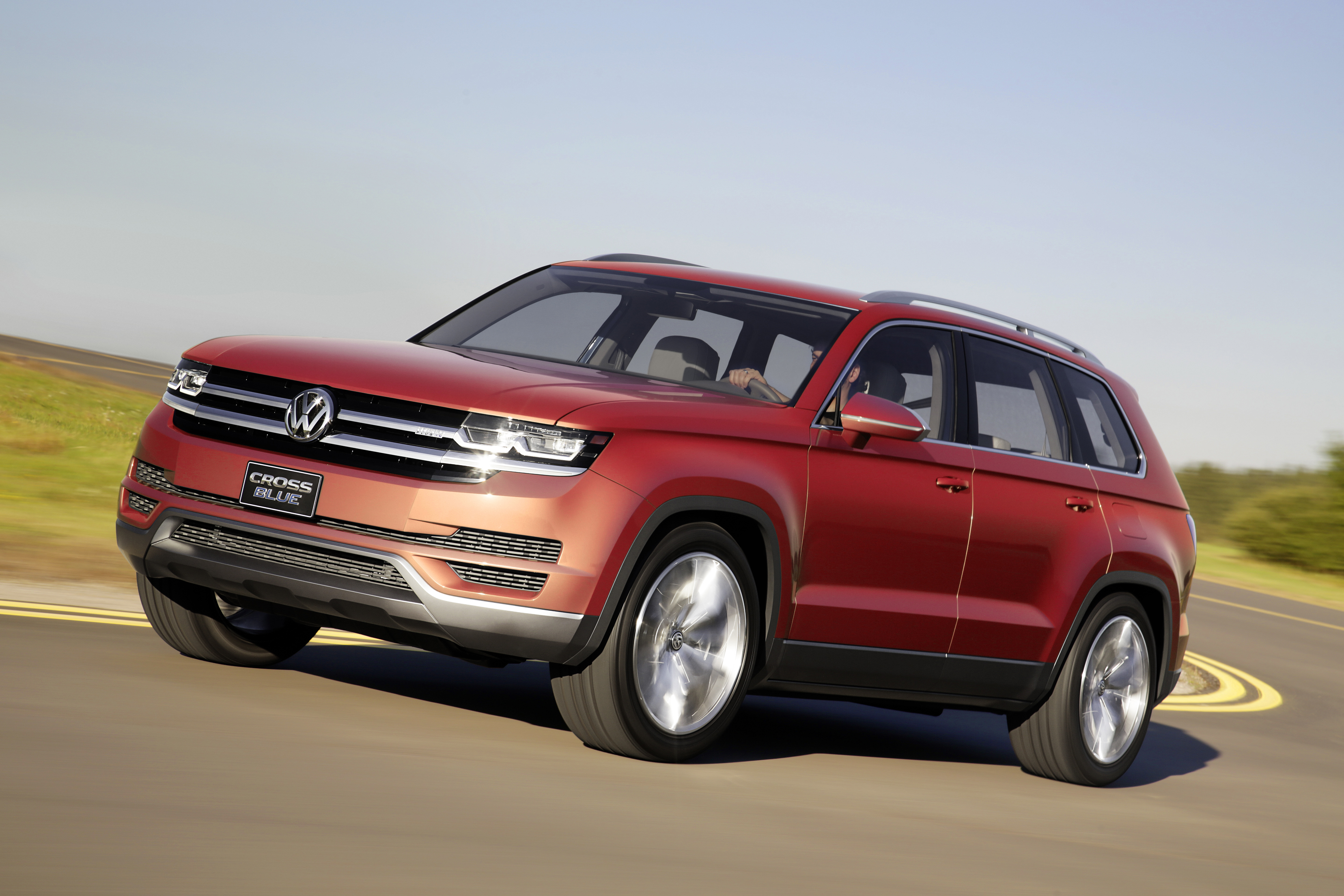Where's the SUV?
Signals about Volkswagen expanding to add an SUV line here and about 1,350 new full-time workers grow more confusing by the day.
On Monday, Reuters reported that the tug-of-war between Mexico and Tennessee over incentives could delay a decision at least until the end of June.
On the same day, at a UAW convention in Detroit, VW's Global Group Works Council General Secretary, Frank Patta, said it will continue to work with the United Auto Workers to organize a "works council" at the Chattanooga plant, even after a union election in February here was "stolen" by conservatives and political leaders.
You might recall that Volkswagen had invited the UAW to help the company form a U.S.-legal works council. Such a council is not a standard union, it's something the Germans term "co-determination" that places workers and management together in a team. The system works well at nearly all of VW's 60-plus plants around the world. But it would only be legal in the U.S. with a labor union.
Last week, Tennessee Gov. Bill Haslam told the Times Free Press that the state had re-engaged with VW to discuss incentives and convince the firm to build its new midsize crossover here. But just before last February's union election, Haslam pulled a previous incentives package for VW off the table -- right before the vote was scheduled. State incentive documents read in part: "The incentives ... are subject to works council discussions between the State of Tennessee and VW being concluded to the satisfaction of the State of Tennessee."
And as the Valentine's Day UAW vote approached, Gov. Haslam and U.S. Sen. Bob Corker, state Senate Speaker Pro Tempore Bo Watson and others implied the economic development sky would fall on Tennessee if VW workers accepted UAW.
Our jobs-deaf lawmakers made threats: "Should the workers at Volkswagen choose to be represented by the United Auto Workers, then I believe any additional incentives from the citizens of the state of Tennessee for expansion or otherwise will have a very tough time passing the Tennessee Senate," Watson said just days before the vote. To add insult, he called Volkswagen's UAW/works council effort "un-American."
Corker told the Times Free Press that VW officials (whom he wouldn't name) told him if the workers reject the UAW, the announcement of the new SUV plant would come in about two weeks. Many interpreted Corker's comments to mean that Chattanooga would not get the new assembly plant if the union was accepted.
Bernd Osterloh, president of VW's Global Works Council, countered to Reuters reporters: "If co-determination isn't guaranteed in the first place, we as workers (who in co-determination have a say) will hardly be able to vote in favor" of potentially building another plant in the South.
The union vote was narrowly lost -- 626 "yes" votes, to 712 "no" votes.
That was more than three and half months ago. We still have no SUV award, no jubilant announcement of 1,350 new full-time jobs here and now perhaps another month's delay in any decision.
When Haslam, who is running for re-election, and the other Tennessee Republicans stump for your vote, be sure to ask them to show you the SUV jobs. They can't. Because they won't. They fear a new union hybrid far too much.
Keep the court above politics
The fact that a bipartisan group can raise $600,000 in a matter of days to back the retention of three Tennessee Supreme Court justices who are bound by ethics from countering the mudslinging from Nashville's far-right lawmakers is testimony that court-watching voters are weary of partisan politicking and gridlock. And they don't want the same in courtrooms.
Republican state Senate Speaker Ron Ramsey and a group of fellow Senate Republicans, including Sen. Mike Bell, R-Riceville, have been trying to rally August voters to say no to retaining three justices who were appointed by then-Gov. Phil Bredesen, a Democrat. The justices are Gary Wade, Connie Clark and Sharon Lee.
Ramsey said the effort is "not just about getting Republicans on the Supreme Court, even though I do believe there are many, many qualified Republican attorneys... ." There are, in fact two Republicans now on the five-member state Supreme Court.
But that's not the issue either. It's really all about the Tennessee attorney general, which is not an elected position because our Volunteer State forefathers thought it best to keep the attorney general separated from partisan politics elections and partisan politics in the governor's office and the legislature.
Tennessee is unique among the 50 states in that its state attorney general is instead filled by the state Supreme Court. The current attorney general is Robert Cooper, a Democrat who once was a top adviser to Bredesen. And if Ramsey can generate enough interest with incomplete and unfair insinuations to swing a no-retention vote, Gov. Bill Haslam -- who seems likely to win re-election -- would appoint new justices.
Put simply, Ramsey wants a Republican Supreme Court and a Republican attorney general.
But that's not how courts work. The judicial system is the portion of our government that is designed to be above partisan politics.

